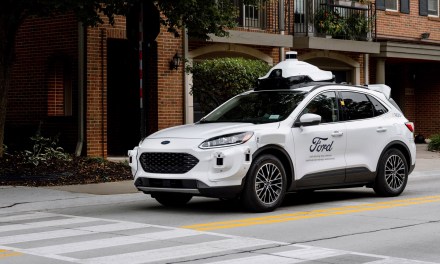Over the weekend, Adam Roe, Founder, CEO and Product Architect at Zero Labs Automotive, introduced Goldar, a classic first-generation Ford Bronco homage with an all-carbon-fiber body and 600-hp (447-kW) dual-motor electric powertrain powered by the latest ZLABS 4.0 platform. From his LinkedIn account, he also renewed his invitation for enthusiasts to join the revolution by investing in the classic-car-electrification pioneer he founded in 2015 and is based in Los Angeles, CA.
The integrated design, engineering, and manufacturing company includes staffers with experience from Tesla, SpaceX, Rivian, WPP, Apple, and Sony, and is collaborating with transportation and mobility brands to develop and promote the next generation of electric mobility products. Underpinning that strategy is the Generation IV platform shown at Electrify Expo in Long Beach, CA, in June that offers significant improvements over the company’s prior technology and designed to more easily integrate with classic vehicle structures. With older conversion technology, the process would take six months or a year and could only be performed by a handful of specialists.
The vehicles based on the platform will initially be made for four primary formats—SUVs, pickup trucks, muscle cars, and two-door coupés—with a variety of popular models and years supported for each format, including special versions for unibody construction. The company, which has hit 77,500+ sales requests, says it owes it to customers to improve the safety and performance of classic vehicles with the modern electric vehicle standards customers and their families have come to expect.
The Generation IV vehicles have optional ride height control, “auto-sensing” rack-and-pinion steering, and significantly improved road performance—while looking “completely classic” inside and out. Digital gauge clusters are recreated from the original designs, and all vehicle diagnostics and controls are behind a hidden screen or viewable from the user’s mobile phone.
Many previously optional Zero Labs features are now standard, including rebuilt frames, upgraded independent front/rear suspension, and now the standard 600-hp dual-motor configuration. Upgrades were made to digital telematics, custom all-digital gauges, VCU (vehicle control unit), CAN (controller area network), and optional vehicle connectivity (now 5G)—in addition to a range of more than 235 mi (378 km) and SAE Level 3 DC fast charging. The company expects classic vehicles equipped with its technology to last well into the future, with their power performance technology to improve regularly, so the battery and software are upgradeable.
Zero Labs says that many recent EV startups funded by SPACs (special purpose acquisition companies) by a combined $189 billion offered short-term hopes to the EV market but most struggled to deliver even a single customer car before their value dropped by 90% or more. This drop affected the public’s confidence in new electric vehicles.
The company steered clear of SPACs and deliberately remained small, choosing to continue developing its products and deliver at a slower pace rather than face obsolescence through premature funding that would’ve destroyed long-term value. As a result, the company says that it has emerged with a well-developed product line ready for scale that has been tested by real clients for years.
“The public needs to see EV startups deliver real products they love and not 3D images and a promise of a better tomorrow,” said Roe. “With nearly 99.5% of the world’s vehicles on the road today having no clean energy future, the EV conversion market is anything but niche. It will take a market leader to prove the potential of this category.”
Zero Labs Automotive, which has been shipping SUVs and pickup trucks since 2021, is charging ahead. The company says it is in discussions for developing technology and working with investors and manufacturing partners to bring vehicles to market at a scale and price to meet global demand and will announce its rollout in the coming months.
“We can’t possibly convert all the important vehicles, but we can supply the market with the technology that can,” said Roe. “Our goal is to develop and support the revolution that will decarbonize millions of fossil-fuel-based vehicles by the end of the next decade. B2B ongoing sales plans are already in discussions for developing technology for countless startup OEMs, private, and federal fleet conversions.”
The push for transportation electrification has been accelerated by ICE (internal combustion engine) sales phase-outs and restriction policies, but so far the company states that only new cars have been a part of the solution. What is driving the company is that 99.5% of the world’s vehicles are still powered by fossil fuels.
With billions spent on creating new vehicles and 1.6 billion combustion vehicles already in existence, the shift toward electric conversion is imperative, believe company leaders. By upcycling the world’s most beloved vehicles, they say that Zero Labs can unlock a new global automotive industry and transform millions of outdated combustion vehicles for a new, high-performance electric future.
By providing an end-to-end solution that spans from ideation through development to market entry, Zero Labs says it enables the creation of EVs at a fraction of the cost and time required for in-house development. It believes that this approach not only streamlines the path to market for new EVs but also democratizes access to the EV industry, empowering a wider range of innovators to contribute to the electric mobility revolution.
- Zero Labs Goldar front side.
- Zero Labs Goldar front.
- Zero Labs Goldar rear side.
- Zero Labs Goldar rear.
- Zero Labs Goldar underhood.
- Zero Labs Goldar interior.
- Zero Labs Goldar front seats.
- Zero Labs Goldar drive controls.
- Zero Labs Generation IV platform.
- Zero Labs EV conversion possibilities.










































































































